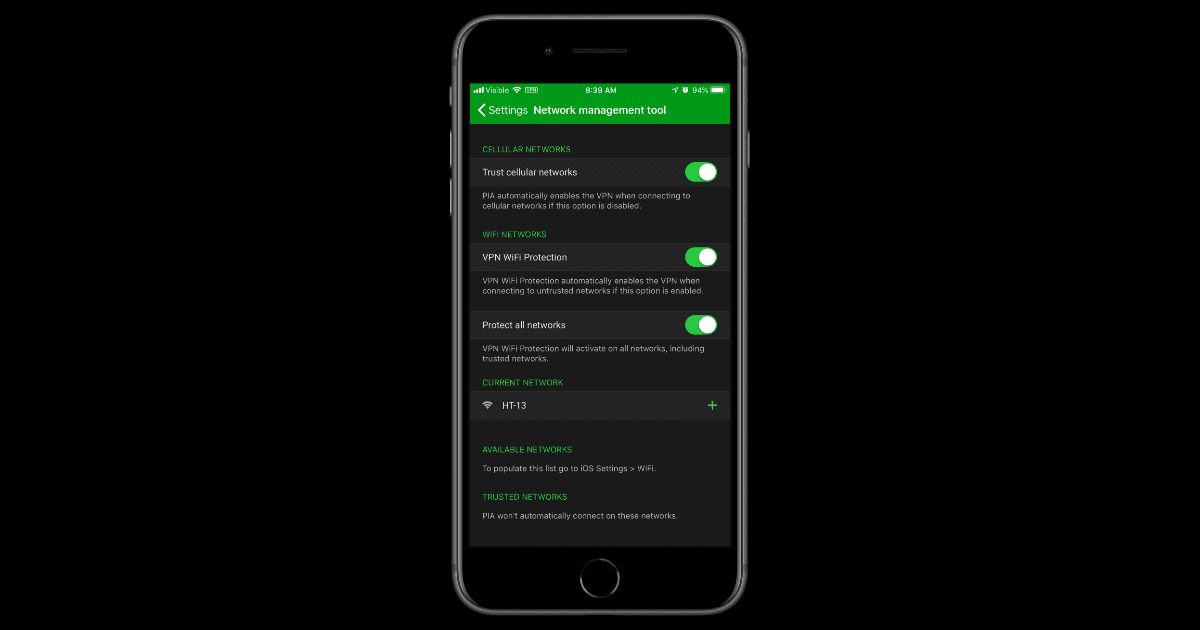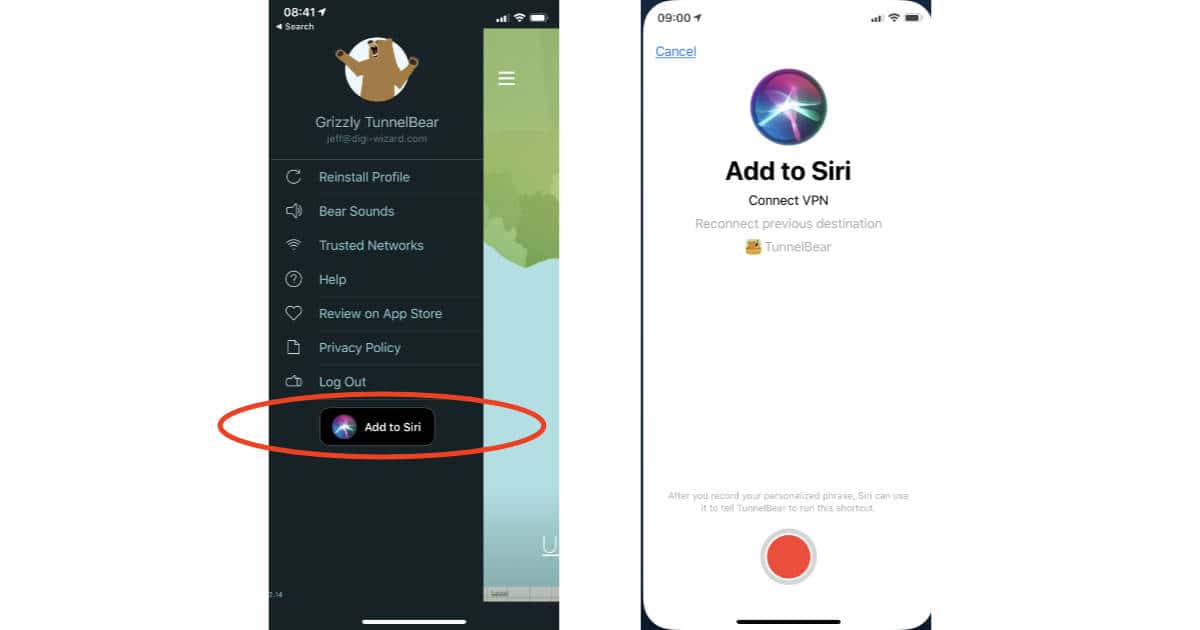The Private Internet Access 2.8.0 update brings a network management tool. When you enable the feature PIA will automatically turn itself on when you connect to untrusted Wi-Fi networks. You can add networks you do trust to a whitelist, including your cellular network. If you set it not to trust cellular networks and you turn on the option to protect all networks, it means that the VPN will automatically turn itself on all the time.
The update also adds support for IKEv2. Internet Key Exchange (IKE) is part of the IPsec protocol suite, and it’s used to set up a security association. Jargon aside, IKEv2 is responsible for making a secure connection between you and the VPN server. It does this by authenticating you both and establishing which encryption methods will be used.














